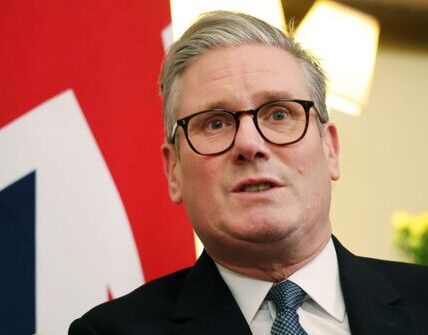Chancellor Rachel Reeves pledged to cut spending but the official Budget watchdog says it will shoot up instead

The number of small boat migrants has risen says the official watchdog (Image: Getty)
Labour’s failure to stop small boats means taxpayers will spend £1.4 billion more on asylum, including hotels and other accommodation, the Treasury’s official watchdog has warned. Chancellor Rachel Reeves had pledged to cut asylum spending by £1 billion, but this was dismissed as a fantasy in the analysis of her Budget statement. The Office for Budget Responsibility said the number of small boat arrivals, and the number of asylum seekers in housing, had risen.
It said: “The Home Office Spending Review settlement was made on the basis that the Home Office would fully stop the use of hotels for asylum-seekers in this Parliament, and asylum spending would be £1.1 billion lower at £2.5 billion in 2028-29 compared to 2025-26 plans. So far this year, the number of migrants arriving by small boat and asylum seekers in supported accommodation has risen by 19 and 8 per cent, respectively, compared to last year. If spending on asylum remained at its 2024-25 level, this would imply £1.4 billion of additional pressure on the Home Office budget by 2028-29.”
And the OBR said: “Demand for asylum accommodation has also grown and is now expected to cost £15.3 billion over the next 10 years, revised up from the Home Office’s previous estimate of £4.5 billion.”
It’s one of a number of shocking warnings in the official analysis of the Chancellor’s Budget.
Taxes are to reach their highest level ever since the Second World War, thanks to new increases announced by Rachel Reeves including a £15 billion increase in income tax, thanks to her decision to extend the freeze on tax thresholds.
The Chancellor’s tax hikes also include a £4.7 billion increase in taxes paid on pension contributions, by changes to a scheme called salary sacrifice.
The result is the highest tax burden since the war. The Office for Budget Responsibility said: “The tax-to-GDP ratio is forecast to increase to a post-war high of 38.3 per cent of GDP in 2030-31, largely due to policy changes announced at this Budget and over the past few years.”
This is partly because she is also increasing spending on welfare, by £9 billion in 2029-30.
This includes the reversals to previously announced cuts to winter fuel payments and health-related benefits, costing £7 billion in 2029-30, and the removal of the two-child limit within universal credit, costing £3 billion by 2029-30, which increases benefits for 560,000 families by an average of £5,310.
A new pay-per-mile road tax means the average driver of a battery electric car in 2028-29 driving 8,500 miles is expected to be charged £255.
The Office for Budget Responsibility has apologised and launched an investigation after its economic and fiscal outlook document was published early ahead of the Budget, describing it as a “technical error”.
Britain’s economy will grow more slowly than predicted over the next four years, according to a forecast that was published early in a Budget blunder.
The Office for Budget Responsibility forecast gross domestic product would grow by 1.5% this year, an increase from its earlier 1% forecast.
But it downgraded growth in 2026 from 1.9% to 1.4%, in 2027 from 1.8% to 1.5%, in 2028 from 1.7% to 1.5% and in 2029 from 1.8% to 1.5%.
The OBR document also confirmed Rachel Reeves’s Budget “raises taxes by amounts rising to £26 billion in 2029-30, through freezing personal tax thresholds and a host of smaller measures”.
The freeze in tax thresholds will result in 780,000 more basic-rate, 920,000 more higher-rate, and 4,000 more additional-rate income tax payers in 2029/30, raking in about £8 billion for the Exchequer.
The freeze will extend for three years to 2030/31.
Other personal tax changes include £4.7 billion through charging national insurance on salary-sacrificed pension contributions, and £2.1 billion through increasing tax rates on dividends, property and savings income by two percentage points.
